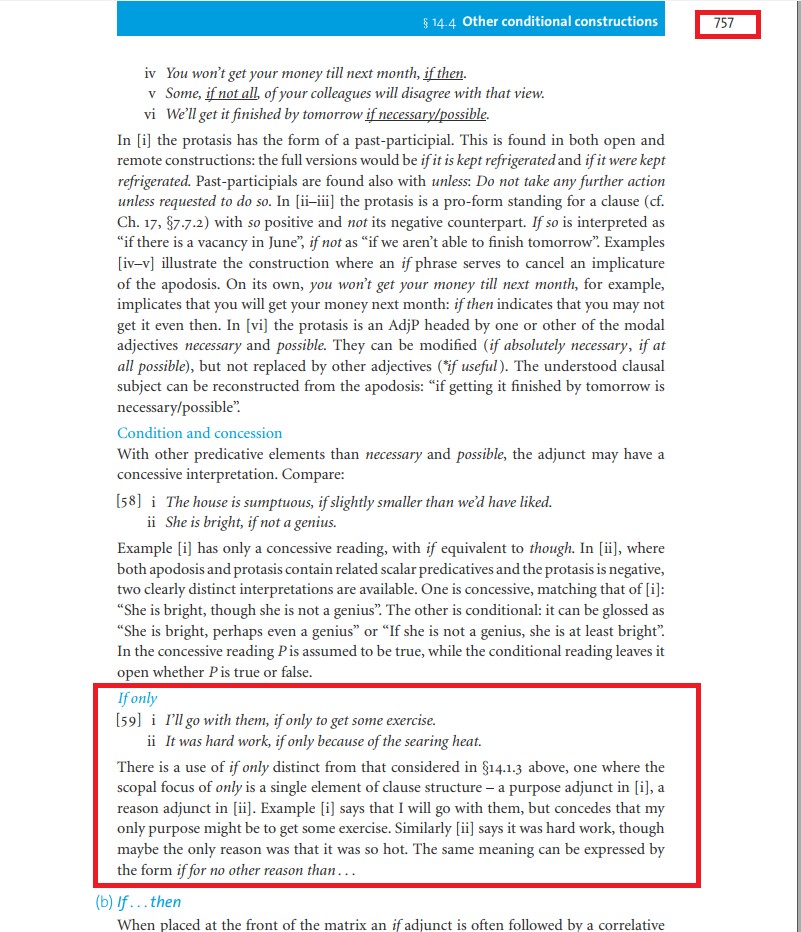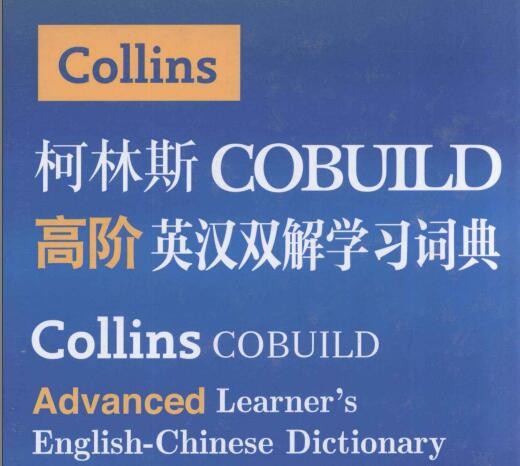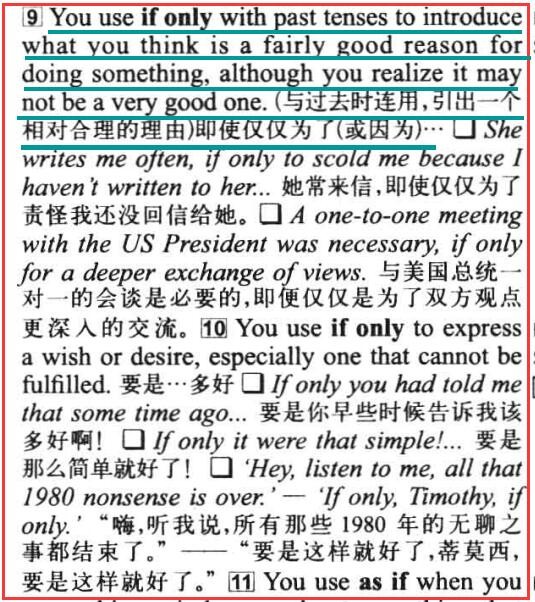5 辞书质疑(18):对《Collins双解词典》一处释义的质疑
下面的内容摘自《Collins双解词典》:
PHR-CONJ-SUBORD (与过去时连用,引出一个相对合理的理由)即使仅仅为了(或因为)… You use if only with past tenses to introduce what you think is a fairly good reason for doing something, although you realize it may not be a very good one.
She writes me often, if only to scold me because I haven't written to her. 她常来信,即使仅仅为了责怪我还没回信给她。
A one-to-one meeting with the US President was necessary, if only for a deeper exchange of views. 与美国总统一对一的会谈是必要的,即便仅仅是为了双方观点更深入的交流。
词典上解释说:“与过去时连用”,但后面的例句好像并没有“与过去时连用”啊!这不是“句”不搭“义”吗?
其它 3 个回答
我理解词典的释义没错,只是例句碰巧省略了过去时态的部分。也许是例句对应的不是很好,体现不出过去时态。if only 后要用过去时态,即虚拟语气的用法, 表示一种推测的的含义。词典的例句if only 后有省略。我补全一下:
She writes me often, if only (she were) to scold me because I haven't written to her.
A one-to-one meeting with the US President was necessary, if only (it were) for a deeper exchange of views.
如果觉得我的回答对您有用,请随意打赏。你的支持将鼓励我继续创作!

- 5 关注
- 3 收藏,2306 浏览
- 李思敏 提出于 2022-10-30 12:03
相似问题
-
 《高考英语备考1号·速效编》
《高考英语备考1号·速效编》
-
 《高考英语备考1号·写作编》
《高考英语备考1号·写作编》
-
 《高中英语晨读晚记》
《高中英语晨读晚记》
-
 《高中英语错题笔记》
《高中英语错题笔记》
-
 《零起点考大学英语》
《零起点考大学英语》
-




